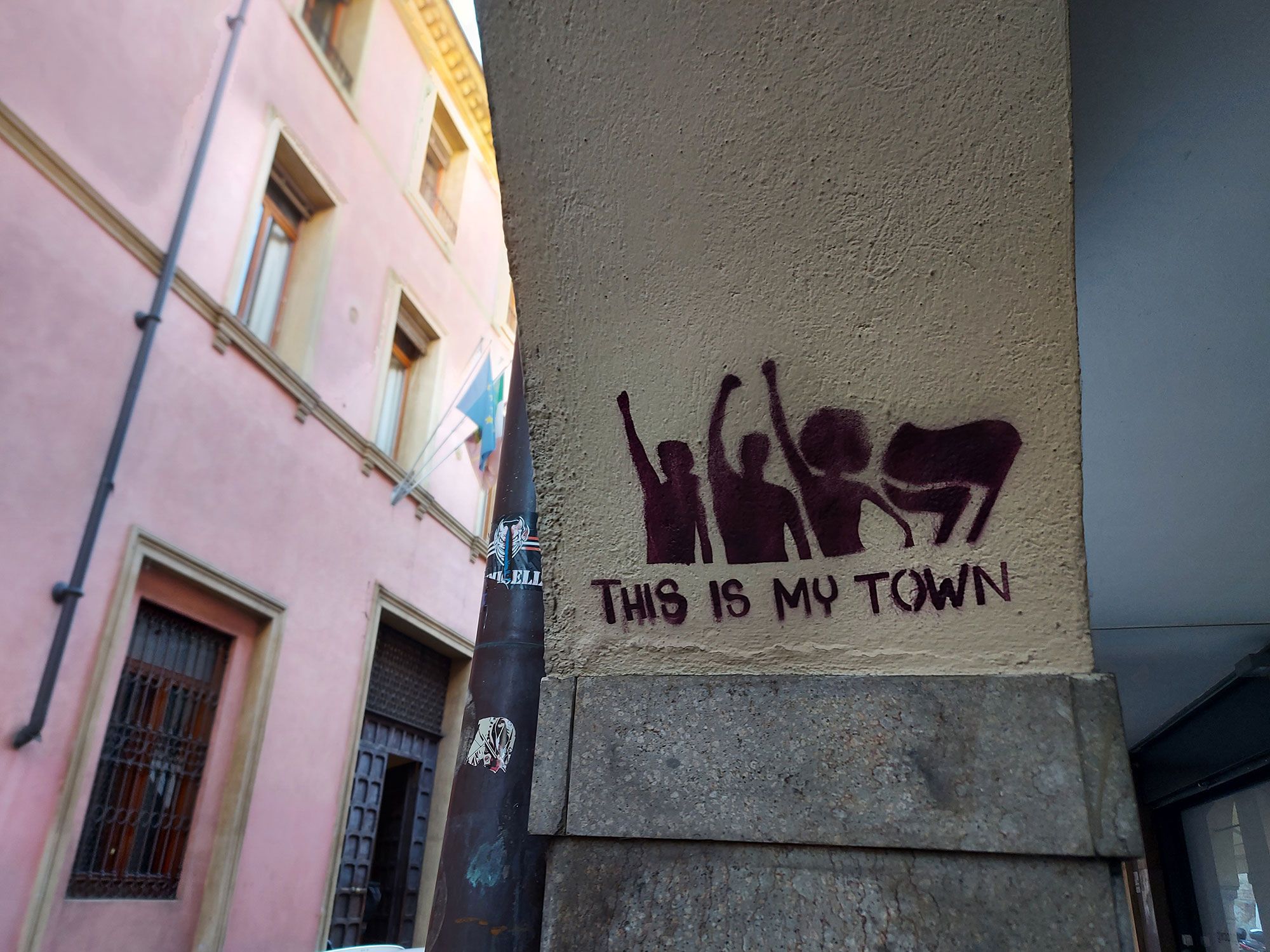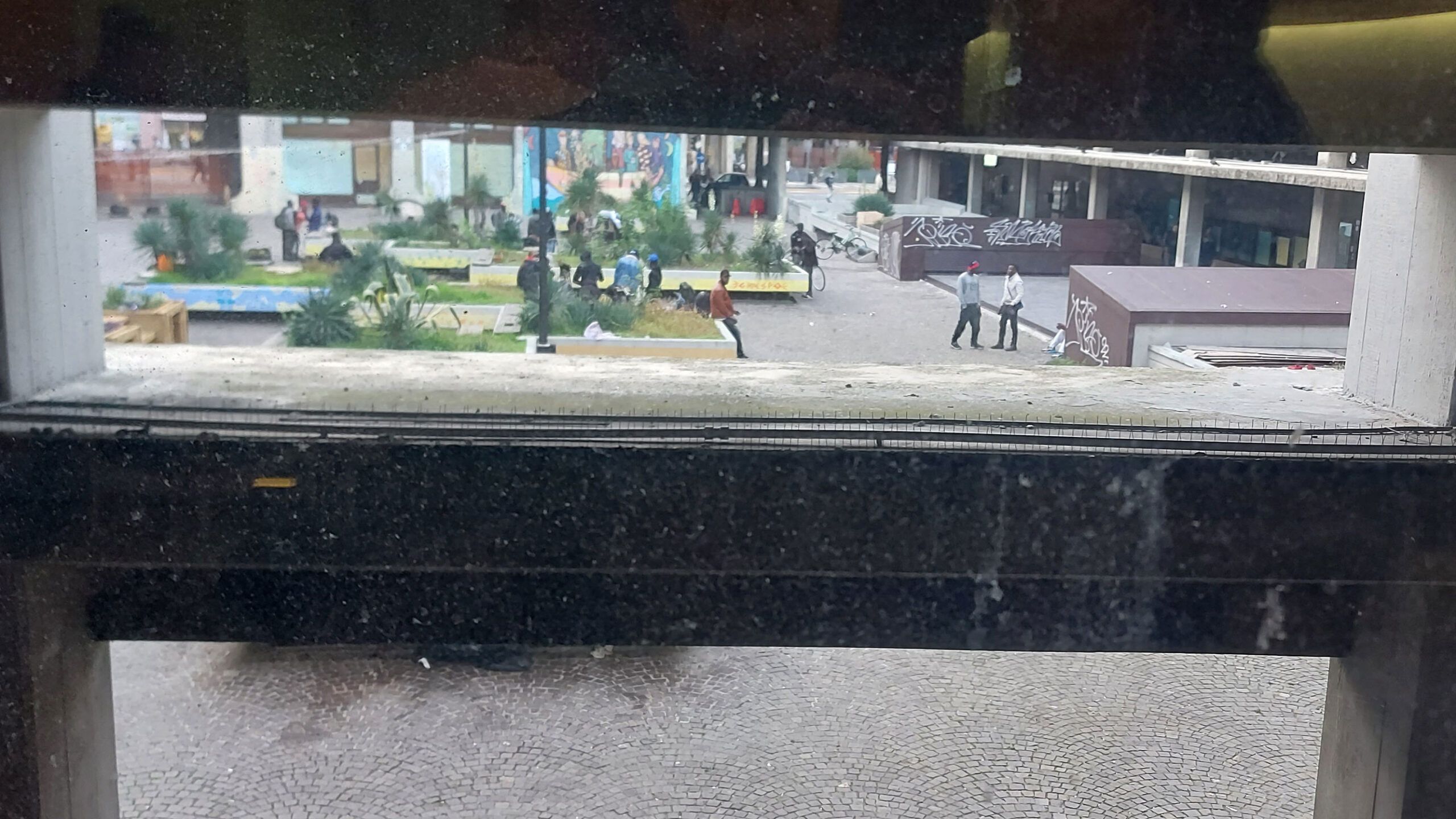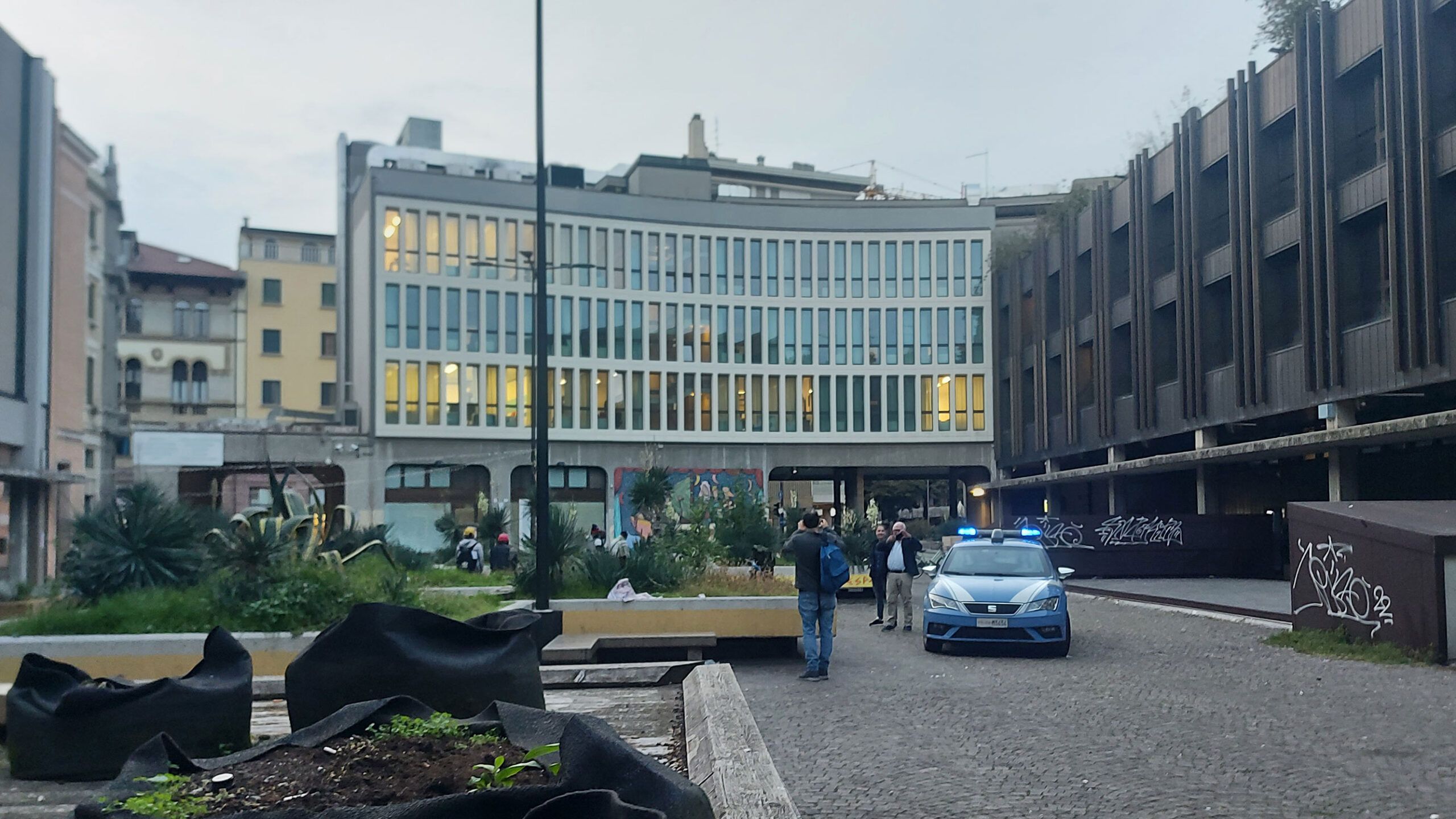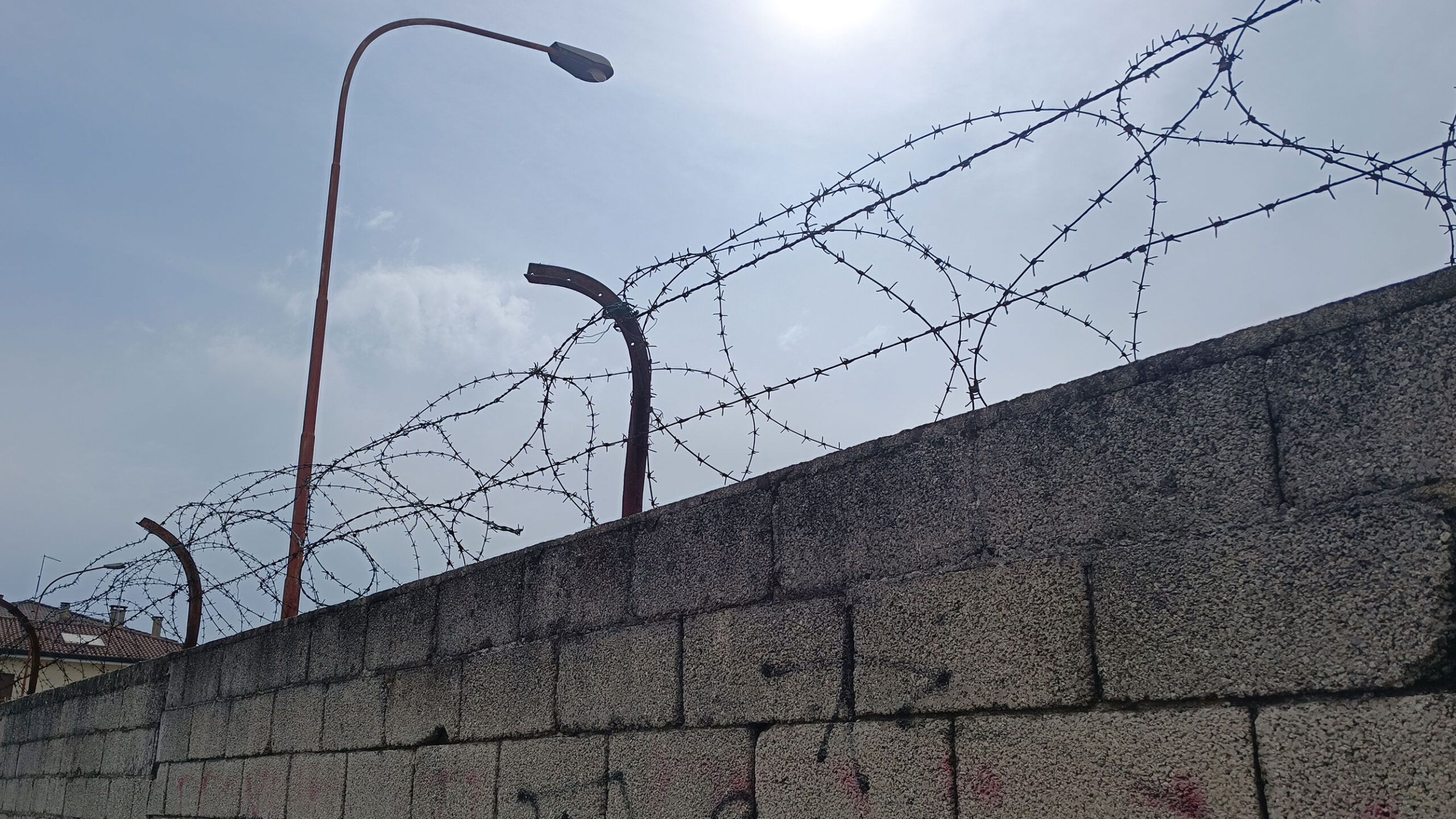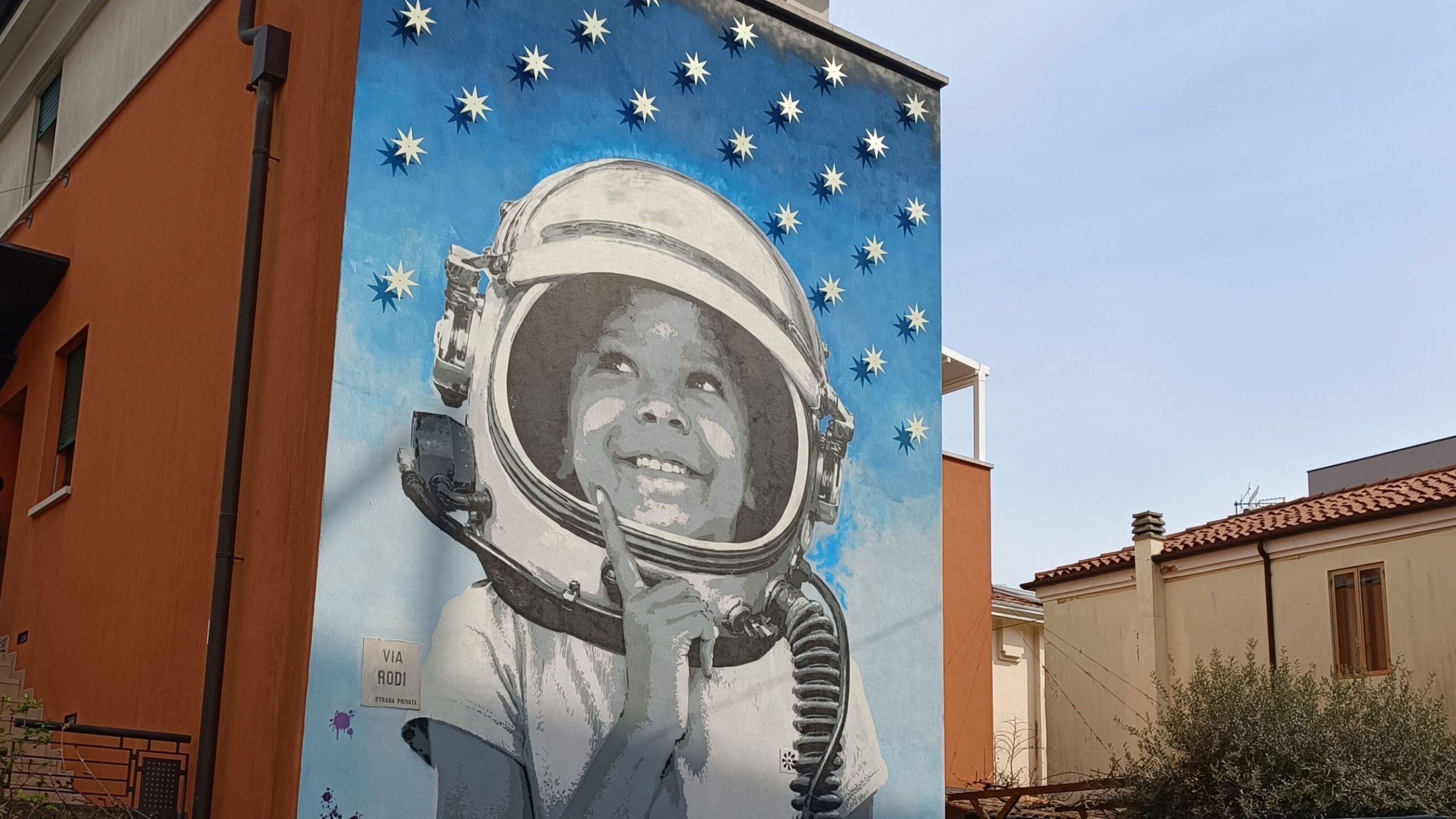THE urban AREA
Cities appear to be new central actors of solidarity with migrants and refugees. At the same time cities can be hostile places for migrants, where they can face spatial segregation and indefinite forced waiting, a peculiar urban “temporal bordering” (Khosravi 2020).
According to Yuval-Davis (2019), bordering must be located in-between the political and the sociocultural, at the intersection of political projects of governance and belonging. Borders are constantly deterritorialised and urban spaces are a privileged site to observe everyday bordering processes linked to neoliberal capitalism and gentrification processes as well as encounters and actions which constitute a porous space.
These porous spaces are also produced by mixed urban solidarity networks that are also highly visible in movements that challenge gentrification in central areas as well as the overwhelming impact of socioeconomic processes linked to tourism industries and local initiatives.
Unipd lead the Urban space of transit working with UniMI and UniNa.
Our case-studies
-
1
The first case-study deals with anti-racist solidarity practices and with new political imaginaries. It is carried out by UNIPD.
Our fieldwork focuses on an ethnographic study of anti-racist solidarity practices in Padova. After a first phase of participant observation and interviews with solidarity activists, a laboratory of collective discussion is organised using the method of the “collective analysis of practices”. In a second phase, starting from the network built in the previous research work, the research focuses on the future imaginaries of migrant and racialised people living in the city through the organisation of two “future labs”.
-
2
The second case-study deals with solidarity networks and intersectional alliances and is carried out by UNIPD.
In many cities heterogeneous social actors have joined together to form broader solidarity networks, for example by supporting the occupation of reception spaces by denouncing the forms and conditions of containment and detention of irregular migrants. We will investigate how these networks build cross-class, race, and gender alliances in Milan, where the historic movement for decent housing met anti-racist struggles against the spatial segregation of migrants and against institutional violence in pre-removal detention centres (CPR) and large reception centers.
-
3
The third case-study deals with and is carried out by UniNA.
Lorem ipsum dolor sit amet, consectetur adipiscing elit. Aliquam diam ligula, scelerisque id maximus id, egestas sit amet sem. Donec ultricies vel augue eu tempor. Vestibulum at finibus dui. Sed pellentesque aliquet ex, a dignissim nunc facilisis eget. Praesent ultrices tellus maximus libero imperdiet, non ultricies nibh consectetur. Aliquam non aliquam felis. Donec venenatis risus nunc, non feugiat risus fermentum eget.
-
4
The fourth case-study deals with migrant riders and unionism and is carried out by UNIMI. By focusing on the most active self-organized and still informal riders’ unions operating in Milan, we will explore the social, physical, virtual and symbolic arena in which different actors, including migrant riders, activists, researchers, students, unionists and citizens have produced innovative practices of workplace solidarity and mobilisation.
URBAN area team

Annalisa Frisina is Associate Professor of Sociology at the Department FISPPA (Philosophy, Sociology, Education & Applied Psychology) of the University of Padova, where she teaches qualitative and visual methods for undergraduate, graduate and doctoral students. Her main research interests are in sociology of racism and migrations, from a post and decolonial perspective. Her participatory video “Decolonising the City. Visual Dialogues in Padova” received two Visual Research Awards in 2021, by the International Visual Sociology Association (AntiColonial & AntiRacist Award for Visual Activism) and by the Festival DocuCity/MetiCittà, University of Milan in cooperation with the Museum of cultures. She is the Scientific Supervisor for the University of Padova Unit in the research project MOBS. Recent publications include: What We see (and What we don’t): Resignifying Urban Traces of Colonialism, in Pauwels L. (ed.), Visual and Multimodal Urban Sociology (with Giovanni Semi, 2023); Music and words against racism. A qualitative study with racialized artists in Italy in “Ethnic and Racial Studies“ (with Sandra Agyei Kyeremeh, 2022); Art and counter-racialization processes. A qualitative research journey with Italy’s illegitimate children in “Studi Culturali” (with Sandra Agyei Kyeremeh, 2021); and a book on Contemporary Racisms. Sociological Perspectives (Carocci 2020).

Francesca Helm is associate professor of English at the Department of Political Science, Law and International Studies at the University of Padova where she teaches English in both first and second-level degree courses. Her research interests include (de)coloniality in language education and edtech, language policy, linguistic landscapes, interculturality and critical internationalisation studies. She is co-coordinator of the Italian section of Scholars at Risk.

F. Gaia Farina is Research Fellow at the FISPPA department, University of Padua and member of the research group ‘Slang’. PhD in Social Sciences: interactions, communication and cultural constructions and B.A. in Communication Studies (University of Bologna), she teaches for the Visual sociology workshop in the first-level degree courses on Sociological Sciences (UNIPD). Her research interests include youth and urban cultures, anti-racism, multicultural society, with a focus on ethnographic, visual and collaborative research methods. Gaia collaborates in the design of social communication campaigns and carries out training activities on issues related to anti-racism, interculture, critical media analysis, gender and intersectional education.
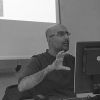
Omid Firouzi Tabar. Phd in “Sociology of cultural phenomena and normative processes”, he carried out studies and qualitative research in the field of migration control policies with a particular focus on “bordering” and “othering” strategies and the ‘counter-conducts’ and resistances implemented by racialised subjects. He is currently Research Fellow at the FISPPA Department, University of Padua. At the same University is member of the research group ‘Slang’ and carries out teaching, research and coordination activities within the Master in “Critical Criminology”.

Gustavo Alfredo Garcia Figueroa. Is Research Fellow at the FISPPA department and member of the research group ‘Slang’, University of Padua. Sociologist, publisher and anti-racist activist. In Venezuela he worked as coordinator of the group of social workers of the Urban Planning Department of the City of Caracas. He has done research and teaching on the social production of living in the slums of the capital and on the social conditions of people with disabilities. He has taught at the Strategic Research on Africa and Diaspora Institute (Caracas). In Italy he attended the master’s degree in Sociology at the Roma Tre University and currently attending the master’s degree in Cultural Pluralism, Social Change and Migrations at the University of Padua. He collaborates with Melting Pot Europe platform. Publisher of the independent Paduan publishing house Oso Melero specializing in Latin American, Caribbean and migrant literature for children.
